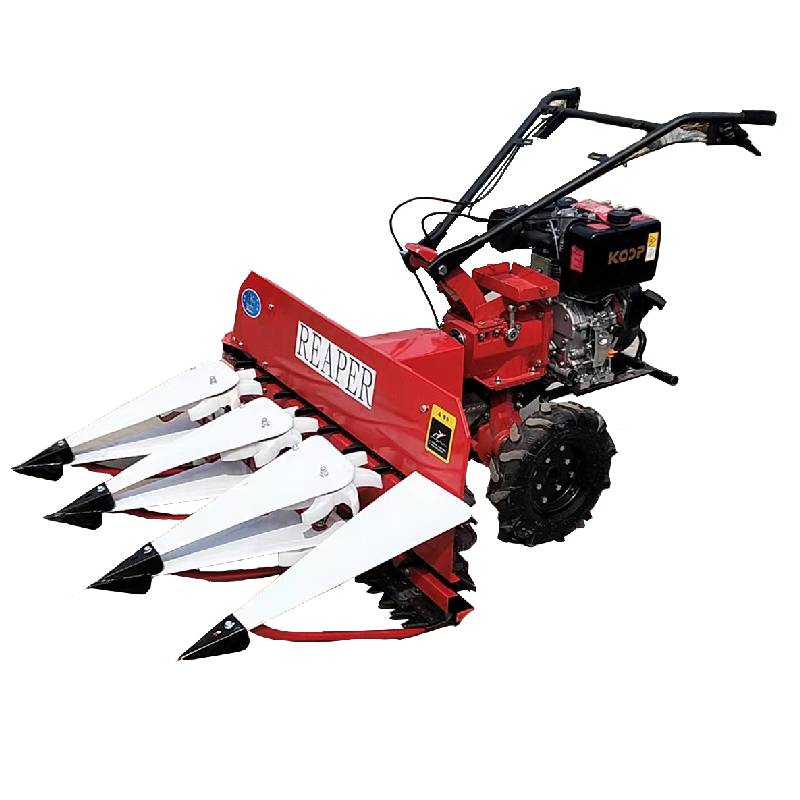Innovative Solutions for Efficient Maize Forage Harvesting Techniques and Equipment
The Importance of Maize Forage Harvesters in Modern Agriculture
Maize, commonly known as corn, is a staple crop that holds significant importance in global agriculture. It is cultivated for various purposes, including food, livestock feed, and industrial applications. As farming practices evolve, the efficiency of harvesting techniques becomes paramount. One of the most innovative advancements in this realm is the maize forage harvester, a machine designed to enhance the efficiency of silage production and improve the overall yield of maize crops.
What is a Maize Forage Harvester?
A maize forage harvester is a sophisticated agricultural machine that is used to harvest maize plants, especially for silage. Silage is fermented maize used primarily as animal feed, and the process of harvesting maize for silage requires precision, speed, and timing. The maize forage harvester cuts the maize plants at the optimal height, chops them into manageable sizes, and stores them in a silo or transport truck, ready for fermentation.
Benefits of Using Maize Forage Harvesters
1. Increased Efficiency Traditional harvesting methods can be labor-intensive and time-consuming. Maize forage harvesters significantly reduce the time required for harvesting. They can cover large fields quickly and efficiently, which is particularly critical during the limited harvesting window when maize is at its peak maturity.
2. Quality of Silage The quality of silage is crucial for animal nutrition. Maize forage harvesters are designed to chop the crop into uniform sizes, which ensures better fermentation and reduces wastage. Properly harvested and processed silage has enhanced nutritional value, leading to healthier livestock and increased milk and meat production.
3. Labor Savings Farmers are often faced with labor shortages, especially during peak harvesting seasons. The use of maize forage harvesters alleviates this pressure by performing the task of multiple farmworkers in a fraction of the time. This allows farmers to allocate their workforce to other essential operations on the farm.
maize forage harvester

4. Versatility Many modern maize forage harvesters are equipped with advanced technology, including GPS and automated steering systems. These features improve accuracy and efficiency, allowing operators to maximize field coverage and minimize operational waste. Additionally, some machines can adapt to different crop types, further enhancing their utility on multi-crop farms.
5. Reduced Soil Compaction Maize forage harvesters are designed with wider tires and lighter operating weights that help minimize soil compaction. Soil compaction can lead to reduced crop yields and poor soil health over time. By mitigating this issue, farmers can ensure better root development and moisture retention in their fields.
Choosing the Right Maize Forage Harvester
Investing in a maize forage harvester is a significant decision for any farmer. Factors to consider include the size of the operation, the type of maize being cultivated, and the specific needs of livestock. Farmers should evaluate the machine's capacity, power source, and adaptability to different field conditions. Additionally, maintenance and support services from manufacturers should be taken into account, as these can vary significantly.
The Future of Maize Forage Harvesting
As technology advances, the future of maize forage harvesting looks promising. Innovations such as autonomous harvesting machines and advanced analytics for crop monitoring are setting new standards in efficiency and sustainability. Farmers will increasingly be able to harness data to make informed decisions about when and how to harvest, ultimately leading to higher yields and better resource management.
Conclusion
The maize forage harvester is a vital tool in modern agriculture, revolutionizing the way maize is harvested and processed for silage. With its ability to enhance efficiency, improve silage quality, and reduce labor demands, this machinery plays a crucial role in supporting the agricultural sector. As farmers continue to adapt to changing market conditions and technological advancements, the importance of maize forage harvesters is only set to grow, ensuring that agriculture remains robust and sustainable for generations to come.
Latest news
-
When to Upgrade Your Old Forage HarvesterNewsJun.05,2025
-
One Forage Harvester for All Your NeedsNewsJun.05,2025
-
Mastering the Grass Reaper MachineNewsJun.05,2025
-
How Small Farms Make Full Use of Wheat ReaperNewsJun.05,2025
-
Harvesting Wheat the Easy Way: Use a Mini Tractor ReaperNewsJun.05,2025
-
Growing Demand for the Mini Tractor Reaper in AsiaNewsJun.05,2025







